Flatwings - "the new black" in Denmark and Sweden. Are they really that good. Not too big for casting? For the trout? Will they twist? Are they better than other sand eel imitations? Are they better suited for pike? Kill your skepticism and take a
It is interesting, scary and funny to observe how fashion also is part of fly tying. A few years ago a champagne-pink colored shrimp imitation hit the Danish coast with a blast. Soon it was spread to Sweden, Cuba, Venezuela, Norway, Ireland and many other places, fresh- and saltwater.
It's all about fashion
When Whiting, who makes the spey hackle used for this fly, couldn't deliver and the prices raised, people started looked for something else.
Once again the father of the Pattegrisen (The Pink Pig) re-launched the flatwings in Denmark. After years and years using well-known shrimp and sculpin imitations. primarily in grayish nuances and a modest sizes, it was now time to tie 10-20 cm long sand eel imitations in white, chartreuse and black.
For some reason now everyone ties flatwings. It is the new black. It is the new fly of fashion with a bit of reason.
Sand eels are very common in most waters around the world. When we take sea trout and gut them 8 out of 10 of the ones, which have anything in their stomach, have sand eels or similar small fish in their stomach. The sand eels here vary from an inch in length to about 15 for the really big ones. I'll stay in the smaller range and make a fly, which can be handled on a one hand rod in my favorite 5-7 weight range, which will imitate the smaller near-shore sand eels nicely.
Flatwings
Four or five years ago, I got a book from GFF Partner and founder Martin Joergensen.
It described many variations and styles of the flatwings going from one-feather wings to the more complex ones having bucktail, feathers and jungle cock. I didn't tie any as I had my Epoxy Miracles, 5 boxes filled with pike flies and no time.
Lat year the winter was hard and long and fishing started slowly. It was difficult to find a chromer, harder than ever. I started to wonder why. Checked my gear. Gave my rod, line and reel a 100.000 cast service check. Adjusted the leader to perfection. All set!
But then... what about the fly? The water was still to the unclear side. Could the trout see my small shrimp/sculpin? Would a bigger fly do it? The Epoxy Miracle? A bigger one. How about the flat-wings?
The forecast for the day said "Spring and great sea trout fishing". My friend Jens was coming over the next day. He is a spin fisher using long sand eel lures. That made it. I wouldn't come short on long sand eel imitations, so when it was all dark and quiet I tied my first flat wings.
To be sure to hook the trout I tied them tandem-style with a sharp short shanked hook attached to a double layered 10 cm piece of nylon, even though Ken Abrames' book didn't describe that set-up. I tied different variations as it was fun to use different materials but the one I liked the most had 5 flatwing feathers tied to it and a mix of pale colored bucktail hairs as well as 3 different colors and types of flash. That happens during the dark nights. Some prefer less material consuming patterns I am not sure where I am on the material scale. It depends on the mood, time, and consumption of red pinot noir.
Jens knocked on the door early next morning and soon we were off to the reef. It was the perfect day - the first day of real spring and every cell in your trout starving body could feel it. We started fishing and soon Jens got a small kelt and then right in the surface I saw the first side of silver in months as it grabbed the newly tied eel. No doubt, it was a chromer.
Jens also got one, but as the reef got more crowded we fled to another area. That turned out to be a good idea. We had the most fantastic fishing and the flatwings just looked amazingly seductive, swimming realistically through the water.
At times it became so hectic I pierced myself with a flatwing and the cold water and cooled my "beep". A few casts later a small chromer locked it self at the bottom and using the rod tip to help it get loose the tip broke and I was now in possession of 8'something customized on location rod. It made casting and fighting a bit more difficult, but what the heck. On such a day with fish close to the shore, chromers, kelts and good company... What else do you need?
As the fishing was so good, and the rear hook often trapped the long flatwing, I decided to cut it off to see if it had any effect on the hooking. It did not. Every trout was hooked just as it should on the front hook even though the eels were between 10 and 20 cm most of them being between 13 and 15.
The Styles
The flat wing can be a simple fly with only one feather and it can be a more complicated one tied with bucktail, several saddle feathers and jungle cock on the side: Here we will show you the different styles and tying some samples. They can be adjusted to just your type of fishing regarding color, size and overall expression - I just say, they look amazing in the water.
One Feather Flat Wing
|
|
|
|
|
|
|
|
|
|
|
|
Two Feather Flat Wing
|
|
|
|
|
|
|
|
More inspiration
You can add more feathers and build a flat wing using three,four or maybe even five long feathers in different colors to make amazing looking.
Find out more about flat wings in our pattern forum like here where Pete Gray does a great job!
- Log in to post comments

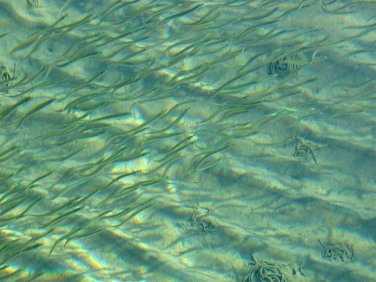
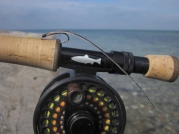
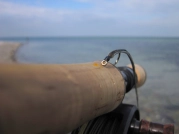
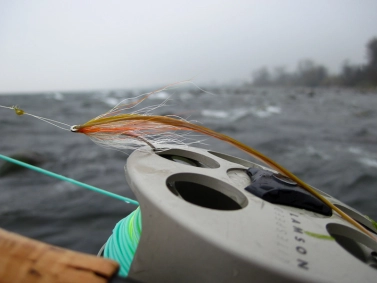
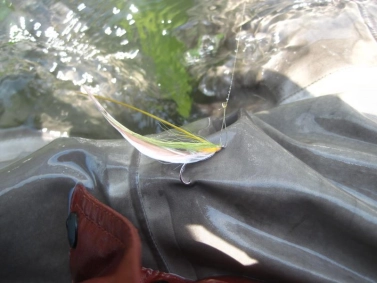
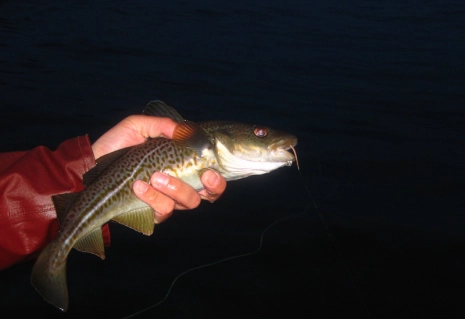
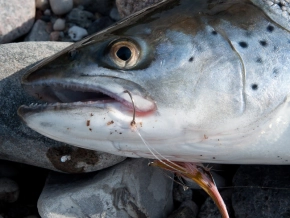

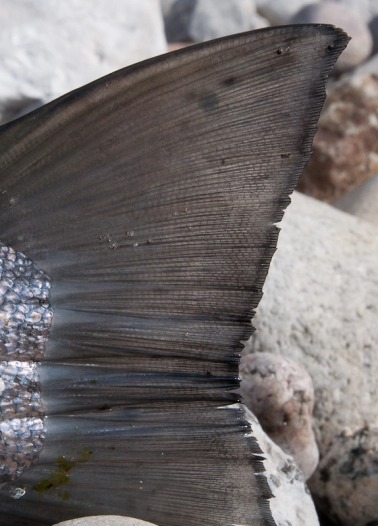
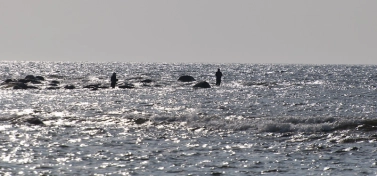
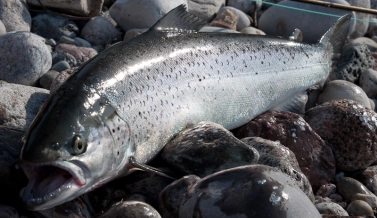

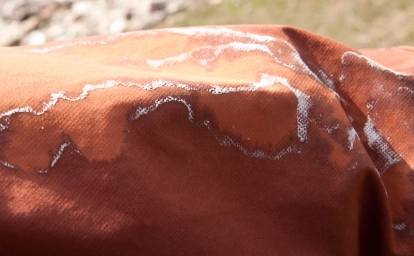
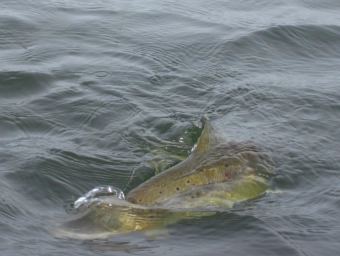
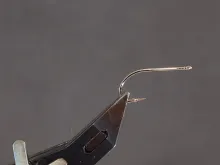
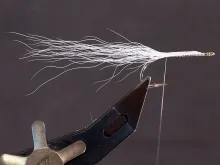
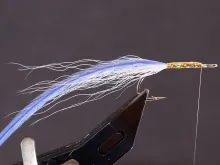
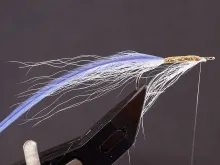
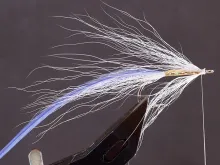
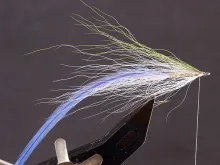
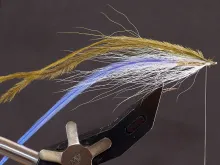
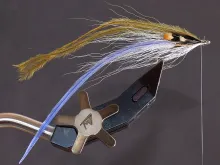
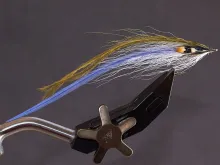
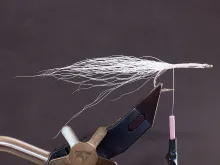
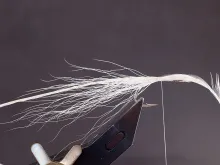
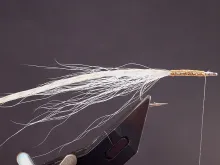
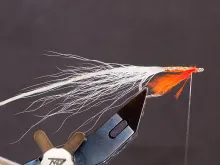
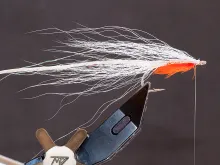
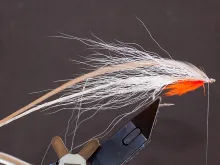
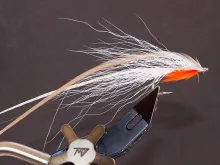
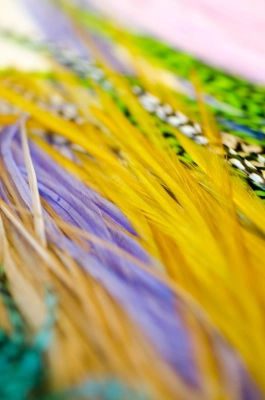
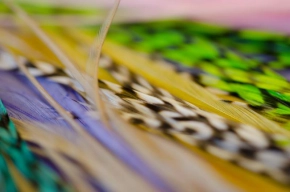
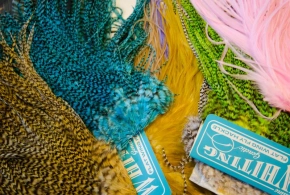

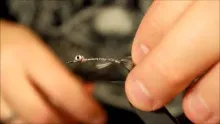

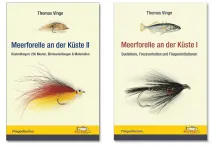



Hi,
Enjoyed the art
Hi,
Enjoyed the article.What size hooks are being used?...
Sorry for not replying earlier
Dan,
Sorry for not replying earlier.
I have no idea who has them in the northwest, and I know they are in heavy demand and often out of stock in shops and from Whiting, but some online shops seem have them (but not in the NW, admitted and some even outside the US):
Bears Den (MA)
Edge Angling (Also MA)
Lakeland Fly-tying (UK)
Martin
Where can I buy whit
Where can I buy whiting flatwing hackle ?
where to buy flat-wi
where to buy flat-wing feathers ? No one in the Northwest has them nor can they buy them from Whiting